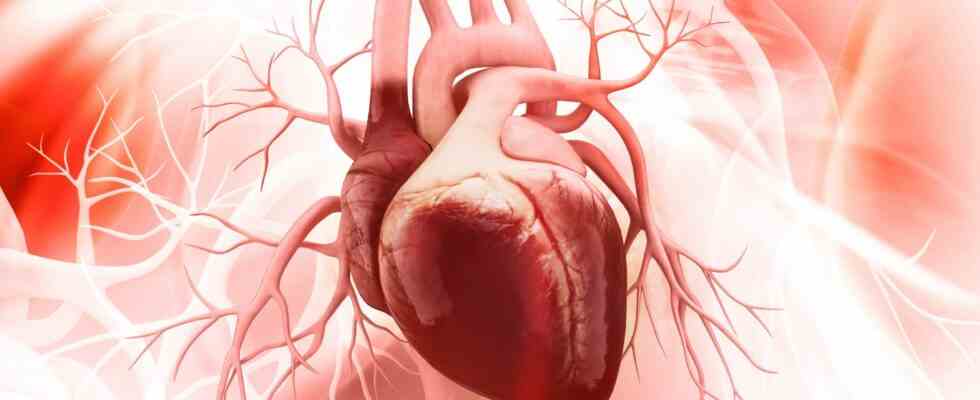Cause of early myocardial disease identified
A German research team identified a previously unknown aging process in the heart. The team covered mechanisms on, which already at a young age can contribute to the fact that those affected have a cardiac insufficiency or severe cardiac arrhythmias develop.
researchers of German Center for Heart Failure in Würzburg (DZHI) deciphered a fundamental mechanism leading to premature cell aging of the heart muscle leads and in the emergence of myocardial diseases (cardiomyopathies) is involved. The research results were recently published in the journal “circulation” presents.
Our DNA needs constant repair
the DNAour genetic information, is estimated to be in every cell of our body every day damaged up to a million times. Various mechanisms ensure that such damage is detected and repaired.
However, due to various factors, these repair mechanisms are weakened or the number of damages increases. Typical factors that negatively affect DNA repair include the aginga unhealthy lifestyle and environmental influences.
If damage to the DNA is not repaired, it will happen mutationswhich in turn the cause of various diseases could be.
New cell aging signaling pathway discovered
“With our investigations, we have now been able to postulate signaling pathways whose activation promotes premature cell aging and the associated inflammation and fibrosis.”explained Brenda GerullHead of Department at the DZHI.
Mutations can trigger premature cell aging
As the team showed, lead certain genetic changes in nuclear envelope proteins to myocardial diseases. A disrupted repair mechanism of the cell nuclear envelope is responsible for premature cell aging of the heart muscle and leads to inflammation and fibrosis (scarring).
First of all, genetic changes in the so-called LEMD2 protein increase the risk of premature aging diseases according to the study. You could do this from a young age heart failure and severe cardiac arrhythmia. There are currently no treatments for this type of damage.
Why does the heart age faster due to mutations?
“We have seen in electron micrographs of the cell nucleus that the mutation leads to invaginations of what is actually a rounded cell nuclear membrane, which in turn disrupts the functions of the cell nucleus.”explained Ruping Chenwho co-led the study with Brenda Gerull.
“The nuclear envelope is ruptured and the cell’s own repair mechanisms are exhausted”like that Chen. This literally perforates the cell nuclear membrane, which results in increased damage to the DNA. The natural repair functions are then no longer able to repair the damage in good time.
New insights into aging and cardiomyopathies
“Ultimately, our work on LEMD2 extends mechanistic insights that could also play a role in other cardiomyopathies but also in the natural aging process”added scree.
The new findings open up new therapeutic approaches for cardiomyopathies, which the research team now wants to investigate in further work. (vb)
Author and source information
This text corresponds to the requirements of medical specialist literature, medical guidelines and current studies and has been checked by medical professionals.
Author:
Graduate editor (FH) Volker Blasek
Sources:
- University Hospital Würzburg: When the heart ages prematurely (published: 01/20/2023), ukw.de
- Ruping Chen, Simone Buchmann, Amos Kroth, et al.: Mechanistic Insights of the LEMD2 p.L13R Mutation and Its Role in Cardiomyopathy; in: Circulation (2023), ahajournals.org
Important NOTE:
This article contains general advice only and should not be used for self-diagnosis or treatment. He can not substitute a visit at the doctor.

